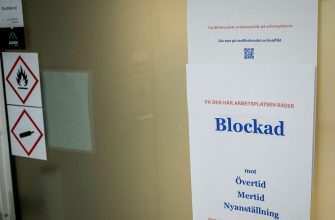At the end of the year, the government will present its research and innovation proposal. The focus must be excellence, innovation and internationalisation. The expert group for studies in public economics (ESO) today publishes the anthology “In the service of society?”, where twelve professors and experts shed light on the conditions for social science research in Sweden.
An overall observation is that an increasingly narrow interpretation of excellence and internationalization risks going beyond the practical use of social science research results. In order for these to be of benefit to society, it is usually required that the researchers themselves can present their results and insights through, for example, expert assignments for investigations and authorities, or through communication with decision-makers and the public.
Such collaboration between academia and society can be said to constitute the raison d’être for publicly funded social science research. If it does not create social benefit, one can think about how long there is interest in financing it with tax funds.
The problem is that collaboration not paying enough career-wise. In the case of appointments and promotions, cooperation weighs lightly or not at all. Decisive in the fierce competition are instead many articles in the most prestigious international journals.
A one-sided emphasis on the number of publications, and on the most prestigious journals, risks leading to social science research becoming less relevant.
Of course, publication in reputable research journals is a quality requirement that cannot be compromised. But a one-sided emphasis on the number of publications, and on the most prestigious journals, risks leading to social science research becoming less relevant and less used.
It depends, firstly, on that cooperation takes time. Investigations, expert assignments, conversations and debates require time that could otherwise be spent on research. In an increasingly competitive research career, it becomes rational, especially for the younger ones, to instead put as much effort as possible into more and more prestigious publications – if that is what counts for the career.
Secondly, for publication in the most prestigious journals, such as the national economy’s “top five”, it is required that the research deals with topics that are not specifically national problems. If it is only such journals that are counted, it becomes rational to select out research questions that relate specifically to Swedish conditions.
Photo: Alexander Mahmoud
Instead of searching for knowledge that can improve how one’s own country works, it becomes smarter to write articles on issues that are considered to be of interest to editors and reviewers at the internationally very highest-ranked journals.
A third potential disadvantage of too much focus on international publications is that the availability of data can control what is researched. Sometimes research on complex societally relevant issues can take a backseat to more peripheral or constructed problems simply because the data is available for later.
A too one-sided focus on publications also means that researchers are attracted to portion out their results in more articles, which can mean that both the overall perspective and accumulated knowledge are lost. The publication pressure also means that the incentives to find connections and results even where there are none increase, which can contribute to a lack of research ethics and – in the worst case – cheating.
The incentives to find connections and results even where there are none are increasing, which can contribute to a lack of research ethics and – in the worst case – cheating.
Internationalization has many advantages but at least one disadvantage: reduced use of the Swedish language. More and more academically active social scientists use English in more and more contexts. At the university, the language affects both the students’ learning and the content of teaching and research. Despite the fact that Swedes generally consider themselves good at English, reading speed decreases when a text is to be read in English.
Teaching in English by a Swedish-speaking teacher tends to become more standardized when personal expressions decrease or disappear. When the operating language is English, the risk is also imminent that teaching and research about domestic institutions and conditions will be downplayed.
It cannot be ignored conditions or career incentives of individual researchers. Therefore, it is important to find ways to encourage researchers to publish their results so that they are useful in society. For ESO, which operates under the motto of being “a bridge between research and politics”, the utilization of social science research findings is a cornerstone of the business.
When the operating language is English, the risk is also imminent that teaching and research about domestic institutions and conditions will be downplayed.
The prevailing incentives mean that it becomes more difficult to motivate researchers to publish their results and insights so that they become available and useful for social debate and decision-making. It is simply not academically worthwhile to, for example, write a report for ESO, participate in a government investigation or assist as an expert for authorities, when the opportunity cost is time devoted to an article for a top journal.
Our simple recommendation to Minister of Education Mats Persson (L) and the universities is therefore: please strengthen excellence and internationalization, but also strengthen the incentives and opportunities for researchers to collaborate with the surrounding society.
The state can, via the research councils, set requirements for cooperation in calls for research funds. The Academy, in turn, should begin to reward it in appointments and promotions. Collaboration should be something that pervades the upcoming research and innovation bill.
Facts.ESO
The expert group for studies in public economics (ESO) broadens and deepens the basis for socio-economic and fiscal policy decisions. Through independent studies, ESO contributes to the social debate and becomes a bridge between research and politics. ESO is a committee under the Ministry of Finance.
Read more articles from DN Debatt.









